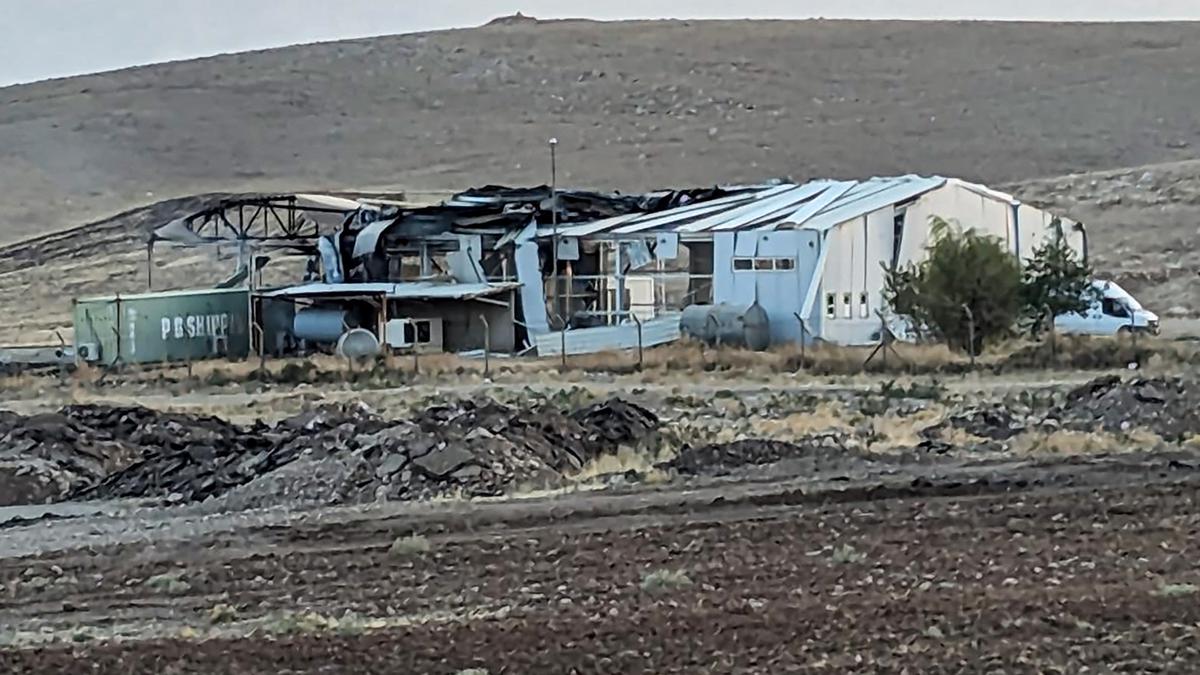
Six killed in attack on small airport in Iraq's Kurdistan
The Hindu
Six killed in drone strike on Arbid airport in Iraq's Kurdistan region; two members of Kurdish security forces wounded; identities of deceased unknown; initial info suggests Turkish drone used; Iraqi Kurdistan's Deputy Prime Minister Qubad Talabani condemns attack, demands federal gov't intervene.
Six people were killed on Monday, September 18, 2023, in a drone strike on the small military airport of Arbid in Iraq's Kurdistan region, a local official and a security source told Reuters.
Iraqi Kurdish security forces sealed off the area, according to two security sources.
Arbid is a small airport used for helicopters located 50 km to the east of the city of Sulaimaniya in the northeast of the country.
Two members of the Kurdish security forces were wounded in the attack and were rushed to a military hospital in Sulaimaniya under tight security, said the police source.
Police said the identities of the deceased were still unknown.
One security source said initial information suggested a Turkish drone was used in the attack against a suspected Kurdistan Workers Party (PKK) target.
Turkey regularly carries out air strikes on PKK militants in northern Iraq and has dozens of outposts in Iraqi territory. The PKK took up arms against the Turkish state in 1984.

“Writing, in general, is a very solitary process,” says Yauvanika Chopra, Associate Director at The New India Foundation (NIF), which, earlier this year, announced the 12th edition of its NIF Book Fellowships for research and scholarship about Indian history after Independence. While authors, in general, are built for it, it can still get very lonely, says Chopra, pointing out that the fellowship’s community support is as valuable as the monetary benefits it offers. “There is a solid community of NIF fellows, trustees, language experts, jury members, all of whom are incredibly competent,” she says. “They really help make authors feel supported from manuscript to publication, so you never feel like you’re struggling through isolation.”

Several principals of government and private schools in Delhi on Tuesday said the Directorate of Education (DoE) circular from a day earlier, directing schools to conduct classes in ‘hybrid’ mode, had caused confusion regarding day-to-day operations as they did not know how many students would return to school from Wednesday and how would teachers instruct in two modes — online and in person — at once. The DoE circular on Monday had also stated that the option to “exercise online mode of education, wherever available, shall vest with the students and their guardians”. Several schoolteachers also expressed confusion regarding the DoE order. A government schoolteacher said he was unsure of how to cope with the resumption of physical classes, given that the order directing government offices to ensure that 50% of the employees work from home is still in place. On Monday, the Commission for Air Quality Management in the National Capital Region and Adjoining Areas (CAQM) had, on the orders of the Supreme Court, directed schools in Delhi-NCR to shift classes to the hybrid mode, following which the DoE had issued the circular. The court had urged the Centre’s pollution watchdog to consider restarting physical classes due to many students missing out on the mid-day meals and lacking the necessary means to attend classes online. The CAQM had, on November 20, asked schools in Delhi-NCR to shift to the online mode of teaching.









